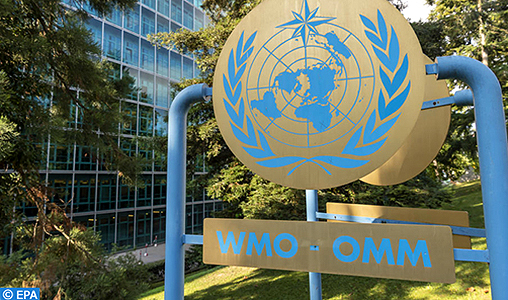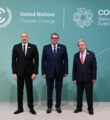Climate Change Impacts ‘Very Visible’, ‘Happening Worldwide’: WMO Chief
Geneva – The impacts of climate change are already “very visible” and “happening worldwide”, the head of the UN weather agency pointed out at the opening of the 55th Session of the UN’s Intergovernmental Panel on Climate Change (IPCC) which convened on Monday.
The meeting opened to approve the report of the second IPCC Working Group focusing on impacts, adaptation and vulnerability to climate change which will be added to the Sixth Assessment Report later this month.
World Meteorological Organization (WMO) Secretary-General Petteri Taalas reminded delegates that during COP26, “there was not a single head of State who questioned the scientific facts”, saying the message had got through and “has been heard”.
The WMO chief noted that some areas of the world such as tropical latitudes and developing countries, especially in Africa, Southern Asia, and the Pacific islands, are particularly vulnerable to climate change.
Last year WMO published a report on disaster statistics, which demonstrated that for the past 50 years, 4.5 billion people have experienced a major weather-related disaster over the past 20 years.
Only a week ago, in Madagascar, deadly Cyclone Batisirai was a Category 4 storm “and had severe impacts on the economy and human well-being”, said Mr. Taalas.
“We have to be careful how we communicate these facts. We have to separate impacts from natural variability to impacts from climate change”.
According to earlier thinking, 2°C was an ambitious enough climate change target.
However, the UNFCC’s previous special report revealed that the impact of 1.5°C would be “a game changer”.
“After that, 1.5°C became the desired outcome of climate mitigation work for the coming years”, said the WMO chief.
However, despite that COP26 was the second most successful conference after Paris, he observed that the 1.5°C target is “barely alive”.
“Climate change impacts are related to economy, food security, infrastructure, the biosphere and health”, he said. “We have to adapt to climate change. That means droughts, flooding, tropical storms, heatwaves, water shortages, coastal inundation”.
Later this year, COP27 will take place in Sharm-el-Sheik, Egypt, followed next year by COP28 in the United Arab Emirates.
“We hope to hear more pledges at those conferences. We are working for such a goal. The next COP will have a more Africa flavour. It is the most vulnerable continent”, he said.













